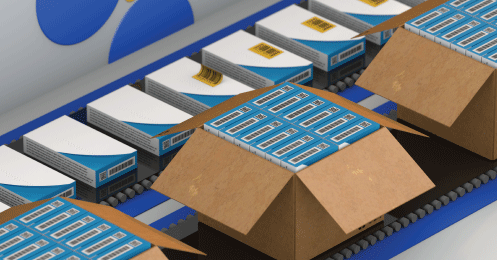Traditionally being a sales rep meant going to door to door to sell product, attending trade shows, showing product demos and cold calling prospects in order to meet quotas. Even though modern sales reps may perform some of the same tasks, a successful sales rep will do more than just sell product. Instead they will work to develop long-term partnerships with their clients, challenging them to implement processes and technology to improve their businesses and achieve their goals. This means sales reps must nurture clients before, after, and during the sale, and establish themselves as an expert in the industry. With social media and the internet, it is more important than ever for sales reps and companies to differentiate their businesses by the service they offer, knowledge they provide and relationships they develop. Information previously only available to sales reps is now accessible to anyone with access to the internet and today 93% of the buying process starts with an internet search.
“Sales is an outcome, not a goal. It’s a function of doing numerous things right, starting from the moment you target a potential prospect until you finalize the deal.” Jill Konrath, Author of the Best Selling Book Snap Selling
As a business owner, it is important to employ the right processes and provide your sales team with the appropriate tools in order to develop these types of partnerships with clients. Having ERP sales tools that are a part of your back-end system will help sales reps in the field, while still maintaining a single database for other departments in the company.
Mobile Sales Application
Mobile sales applications for use on devices like an iPad are a great tool for sales reps taking orders and sharing product information on the road and at trade shows. These types of apps are designed to integrate with your back-end ERP system, so that all order and inventory information goes through one database. With real-time data, sales reps are able to place orders while with clients and can be assured they aren’t promising product they don’t have. This also means employees back in the office can continue to take orders through other sales channels. Sales reps have the flexibility to change orders on the fly, check available inventory information, and add new contacts, eliminating any cumbersome re-entry or follow-ups at a later date.
Reports
Automated reports that get sent to sales reps on a regular basis can be a terrific tool for managing client relationships and spotting opportunities in the industry. Some report examples include:
- Top Customers Based on Sales Revenue
- Booked Orders By Date
- Top Products by Sale
These types of reports help sales reps make decisions about how much time and effort they should put into promoting specific products and developing relationships with clients, and identify where there is room for improvement and opportunities based on market trends. This type of information is empowering for sales reps as it helps them take more control of their success. In addition, it makes it easier to transition clients between multiple sales reps and predict customer behaviour and buying patterns.
CRM
An ERP system with CRM features is useful for inside and outside sales staff and management. Features should include the capability to log verbal and email communication with prospects and customers, automated emailing of invoices and other prospect/customer communication, quick search options to bring up historical data, the ability to set next action dates and enter multiple company contacts and much more. These features work to help sales reps move prospects through the sales funnel, developing those relationships and ultimately making the sale. This also allows for further after-sale communication.










